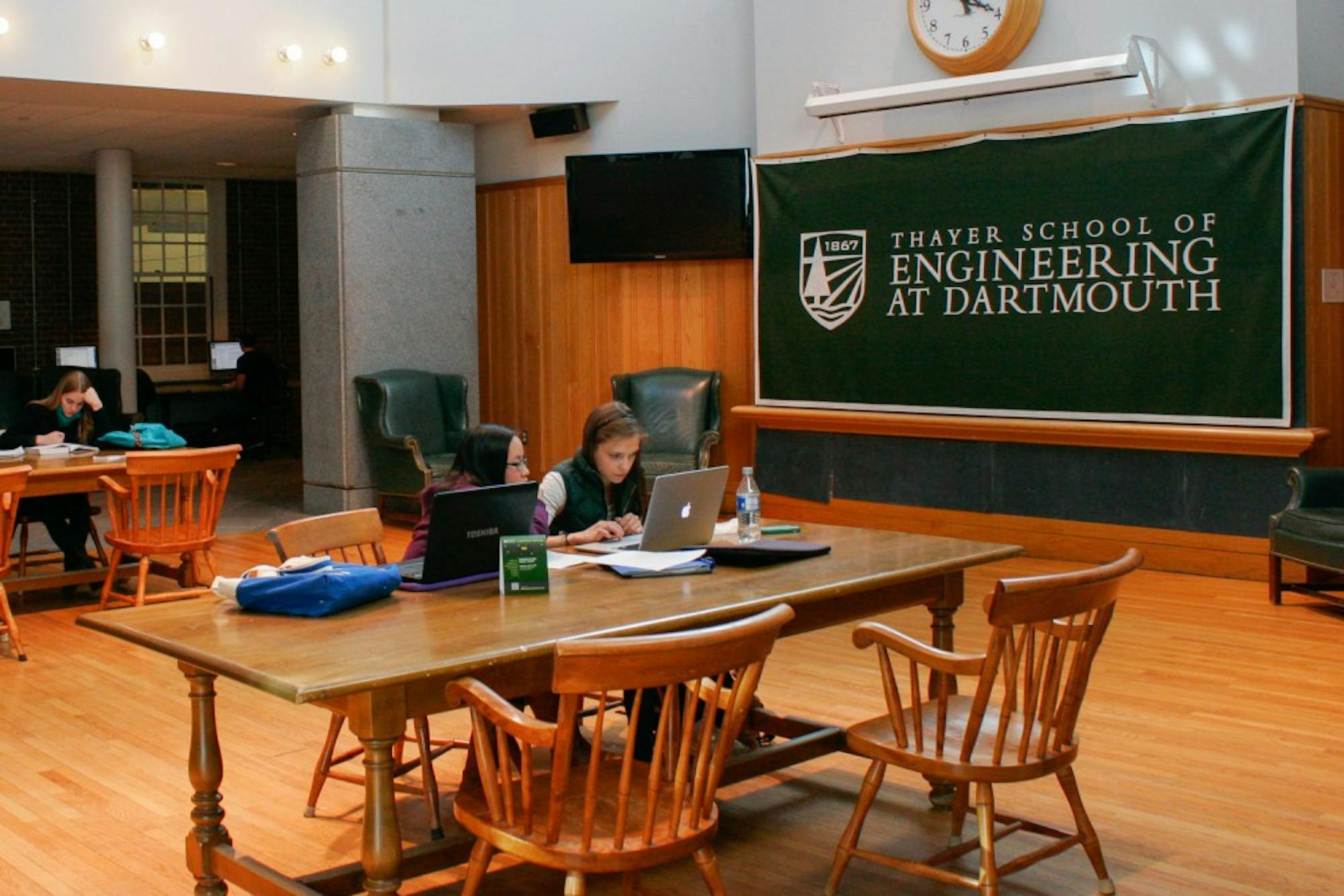Thayer School of Engineering’s proposed expansion is expected to accommodate a growing number of students interested in the field and increase majors’ course schedule flexibility. Students and faculty interviewed said they support the expansion, announced by College President Phil Hanlon last November.
The number of undergraduate engineering majors has grown in the past five years and the department is currently at capacity, Thayer dean Joseph Helble said. Engineering students can face high levels of competition during course enrollment as many required major classes have enrollment caps.
Alumni, corporations and foundations will fund the expansion process, which will finish over the course of the next decade, Helble said. Although the exact scale has not yet been solidified, Thayer and its programs are conservatively expected to expand by 50 percent, he said. The expansion will involve significant increases in faculty, research opportunities and design course offerings for non-engineering students, as well as an expansion of Thayer’s entrepreneurship-related programs.
Hanlon’s broad vision for the College, Helble said, emphasizes innovation and entrepreneurship, increases in experiential learning and improving classroom technology use. Thayer’s expansion will help fulfill this vision, Helble said.
Dartmouth currently limits the number of students who can take advantage of Thayer’s resources, Helble said, noting that its entrepreneurially-focused Ph.D. Innovation Program admits no more than five students per year. The number of undergraduate engineering majors has grown to 85 in 2013 from 66 in 2004.
“Dartmouth students are entering a world that is and is going to be dominated by technology,” Helble said. “Engineering is the language the helps you understand a world dominated by technology.”
Thayer professors interviewed said that the expansion is a positive step.
Engineering professor Brian Pogue said the expansion is necessary to compete with peer institutions. Dartmouth has one or two experts per engineering field, while competitors like the Massachusetts Institute of Technology have as many as 20. Thayer currently has 51 permanent faculty members.
“We’re pretty paper-thin in terms of coverage of the field of engineering,” Pogue said.
Since engineering is one of the largest undergraduate majors at Dartmouth, growing the program is a logical step, Pogue said.
Although critics of the expansion are concerned that it will weaken connections between faculty and students, Thayer professor Tillman Gerngross said he does not expect the expansion to have this effect.
Last winter, many students had trouble enrolling in “Systems,” a prerequisite for higher-level engineering courses, engineering major Callan George ’16 said. The department expanded the class limit from 40 to 70 students, but some interested students still could not enroll, she said.
Since interest is growing, the expansion seems natural, she said, calling it a “great idea.”
Course enrollment is particularly challenging for engineering students because they must structure their D-Plans around major prerequisites and requirements.
Claudia Pham ’15 said her engineering class on biomaterials is taking place on Tuesdays and Thursdays from 8 to 10 a.m. due to lack of classroom space during the 10A and 2A class periods.
Vipul Kakkad ’13 said that when he took introductory courses several years ago, there were fewer students in the program and he did not face difficulty enrolling in classes. Planning his major was still challenging, he said, because certain classes are not offered every year.
An expansion would ease engineers’ schedules, Kakkad said.
Andrew Berson ’15 said he thinks Hanlon has emphasized the expansion because of the demand for engineers in the U.S. and the major’s focus on experiential learning.




